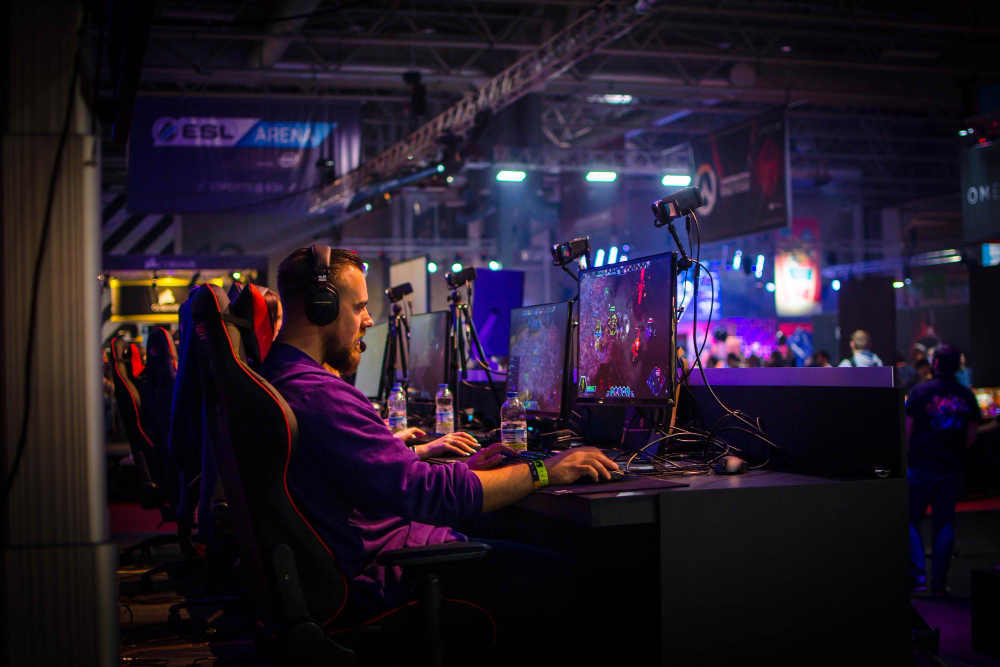How Betting Is Blending Into Esports and Gaming Culture


In recent years, the lines between gaming, entertainment, and betting have started to blur in ways that would have been unthinkable just a decade ago. As esports tournaments fill stadiums, competitive gaming attracts massive global audiences, and streaming platforms offer round-the-clock access to competitions, betting has naturally followed. Today, many fans use tools like an online odds calculator to better understand the ever-evolving betting markets that now exist alongside their favorite games and teams.
While traditional sports betting remains dominant, the rapid growth of esports and gaming culture is creating entirely new opportunities for wagering — and raising important questions about how technology, culture, and commerce intersect in this new landscape.
The Rise of Esports Betting
Esports — competitive video gaming at a professional level — has grown into a billion-dollar global industry. Games like League of Legends, Dota 2, Counter-Strike: Global Offensive, and Valorant have built competitive ecosystems that rival traditional sports leagues in both scale and revenue.
Where massive viewership exists, betting markets naturally follow. Major sportsbooks now offer odds on:
- Match winners
- Tournament outcomes
- Player performance props
- In-game events like first kills, round winners, or map outcomes
For fans deeply invested in the strategies, team dynamics, and individual player skills of their favorite esports titles, betting offers an additional layer of engagement. It’s not just about chance — it’s about analyzing data, understanding meta shifts, and predicting outcomes based on deep knowledge of the games.
How Betting Is Reshaping Gaming Culture
Image from Unsplash
While esports is the most visible frontier, betting is influencing gaming culture more broadly:
- Twitch Streams & Sponsored Betting Content: Some streamers now partner with sportsbooks or include betting discussions as part of their gaming commentary.
- In-Game Betting Features: Certain blockchain-based gaming platforms are experimenting with integrated wagering systems.
- Fantasy Esports Leagues: Much like traditional fantasy football, fans can build rosters and compete based on real-world esports results.
- Community Prediction Platforms: Sites and apps allow fans to compete by making predictions on tournament outcomes, sometimes with rewards attached.
This blending of gaming and betting reflects a broader cultural shift where entertainment, competition, and financial stakes increasingly overlap.
Tech Tools Simplifying Betting for Gamers
The technical complexity of betting — especially when dealing with fractional odds, multiple outcomes, or accumulator bets — can be intimidating for newcomers. That’s where modern tech tools like the online odds calculator come into play, allowing users to:
- Convert odds into understandable payout figures.
- Calculate combinations across multiple games or matches.
- Evaluate risk-reward scenarios in real time.
- Simulate different staking strategies.
By lowering the barrier to entry, these tools make betting more accessible to younger, tech-savvy gamers who are already familiar with data-driven decision-making in their gaming experiences.
Gamers’ Natural Affinity for Probability and Strategy
It’s no accident that gamers are drawn to betting markets. Many popular video games involve:
- Probabilistic loot systems
- Randomized outcomes
- Strategic resource management
- Pattern recognition and predictive modeling
Whether managing drop rates in a gacha game or analyzing draft strategies in a MOBA, gamers are constantly working with probabilities. This skillset transfers naturally to betting, where similar thinking applies: weighing odds, managing risk, and evaluating potential outcomes.
The Role of AI and Algorithms in Modern Betting
As betting platforms grow more sophisticated, artificial intelligence (AI) and machine learning algorithms are increasingly shaping odds and betting experiences:
- Real-Time Odds Adjustments: AI models update lines based on live game data and market movements.
- Personalized Recommendations: Platforms suggest bets based on user history and preferences.
- Fraud Detection: Algorithms monitor for unusual betting patterns and flag potential manipulation.
- Data-Powered Analytics: Fans gain access to advanced predictive models previously only available to professional bettors.
These innovations both enhance user experience and raise new ethical considerations, particularly around responsible gaming and data privacy.
According to a recent report by Allied Market Research, the global esports market is projected to reach $9.2 billion by 2033, growing at a compound annual growth rate (CAGR) of 21.2%. The report highlights expanding global interest in competitive gaming, increasing investment from sponsors, and rapid technological innovation—including AI-powered analytics and betting platforms—as key drivers fueling this growth.
Responsible Betting: The Ongoing Conversation
While the fusion of gaming and betting offers new entertainment possibilities, it also comes with responsibility. As platforms become more engaging, concerns about addiction, targeting younger audiences, and ethical marketing practices continue to be discussed by regulators, advocacy groups, and industry leaders.
Responsible betting in this hybrid space requires:
- Transparent odds and clear disclosures.
- Age verification systems.
- Tools for users to set betting limits and self-exclude if necessary.
- Continued education about the risks and responsibilities of gambling.
Balancing innovation with consumer protection remains one of the industry’s most important challenges moving forward.
Betting’s Cultural Normalization in Gaming
Perhaps the most notable cultural shift is how normalized betting has become within gaming communities. Where once gambling was seen as entirely separate from video games, today:
- Major tournaments feature odds integrations during broadcasts.
- Streaming personalities openly discuss betting markets.
- Betting companies sponsor esports organizations.
- Social media is filled with predictions and betting discourse.
For younger generations raised in an always-online world where digital entertainment, social interaction, and financial transactions converge, betting feels like a natural — though still controversial — extension of their gaming life.
The intersection of betting and gaming is reshaping both industries and redefining what it means to be a fan, player, or spectator. As esports and gaming culture continue their explosive global growth, betting platforms will likely become even more deeply integrated into the experience, offering new forms of engagement for tech-savvy audiences.
At the same time, tools like the online odds calculator are making complex betting systems more approachable, giving gamers and bettors alike the ability to evaluate wagers with greater precision and confidence.
As this cultural convergence evolves, it will remain essential for the industry, regulators, and communities to ensure that innovation enhances entertainment while protecting those most vulnerable to its risks. The future of betting in gaming culture is undeniably bright — but must also be approached with caution, transparency, and responsibility.
The post How Betting Is Blending Into Esports and Gaming Culture appeared first on Our Culture.






